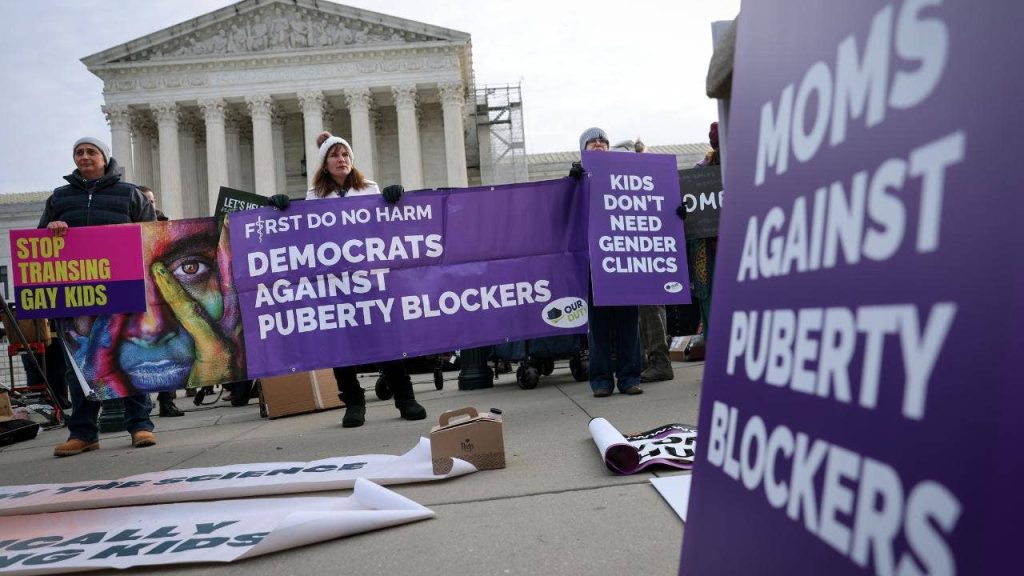During oral arguments in the U.S. v. Skrmetti case, Justice Sonia Sotomayor compared the risks of transgender medical procedures on minors to those of taking over-the-counter painkillers. She argued that every medical treatment comes with risks, but the benefits must be weighed against the potential harm. Tennessee Solicitor General Matthew Rice defended his state’s ban on transgender medical procedures for minors, citing irreversible consequences reported in countries like Sweden, Finland, and the United Kingdom. Rice dismissed alternative approaches, stating that the risks associated with gender transition cannot be entirely eliminated, leading to a debate on weighing benefits versus risks.
The United States v. Skrmetti case focuses on a Tennessee law that prohibits gender-transition treatments for adolescents in the state. Health care providers in Tennessee who continue to offer these treatments to transgender minors risk fines, lawsuits, and other forms of liability. The case has attracted attention due to the involvement of the Biden administration, which supports overturning the Tennessee law. Justices Brett Kavanaugh and Amy Coney Barrett, appointed by former President Trump, posed tough questions to both sides during the oral arguments. A ruling on the case is expected by July 2025, with Justice Neil Gorsuch remaining silent throughout the hearing.
The petitioners in the case are the American Civil Liberties Union (ACLU) and a Memphis-based doctor who treats transgender patients, representing parents of three transgender adolescents. The Biden administration joined the case earlier this year under a federal law that allows intervention in cases deemed of general public importance. Tennessee’s Senate Bill 1, passed in March 2023, is one of at least 25 U.S. states that have banned gender transition for transgender minors, while over 15 states have enacted laws protecting such procedures. The involvement of the Trump-appointed justices in the case could play a significant role in the final ruling.
Justice Sotomayor’s comments during the oral arguments highlighted the ongoing debate around transgender medical procedures for minors, with a focus on balancing the potential benefits with the associated risks. Tennessee Solicitor General Rice defended the state’s ban by pointing to irreversible consequences seen in other countries that have heavily restricted such interventions. The involvement of the Biden administration, along with the support of organizations like the ACLU, reflects the broader implications of the case. The Supreme Court’s decision, expected by July 2025, will likely have a significant impact on the regulation of gender-transition treatments for transgender minors across the United States.
The debate surrounding the U.S. v. Skrmetti case raises important questions about the rights of transgender minors to access medical procedures for gender transition, the potential risks and benefits of such treatments, and the role of state legislation in regulating these practices. Justice Sotomayor’s analogy to over-the-counter painkillers serves to illustrate the complexity of weighing risks and benefits in medical treatments. The involvement of the Trump-appointed justices in the case, along with the support of the Biden administration and organizations like the ACLU, underscores the broader societal and legal implications of the issues at stake. The outcome of the case is likely to have far-reaching consequences for transgender rights and healthcare practices in the United States.
Overall, the U.S. v. Skrmetti case represents a significant legal challenge to Tennessee’s ban on transgender medical procedures for minors and raises broader questions about the regulation of gender-transition treatments across the United States. The involvement of the Supreme Court in this case, along with the support of the Biden administration and organizations advocating for transgender rights, highlights the importance of this issue in contemporary legal and social debates. The ruling expected by July 2025 will likely shape the future landscape of transgender healthcare practices and policies in the country, with implications for the rights and well-being of transgender minors seeking gender transition treatments.










